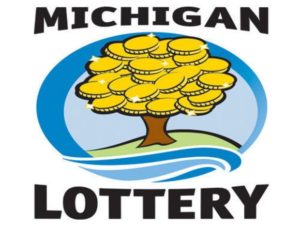In a world when winning the Powerball or Mega Millions jackpot is as unlikely as matching the lottery numbers one in 300 million, it’s easy to overlook the necessity to claim lottery prizes anonymously. Lottery winners who win large should think about staying anonymous to avoid the various privacy and safety risks that come with the territory. Many states are now adopting laws that enable lottery winners to keep their identities hidden. Lottery winners may safeguard themselves and their privacy by following these guidelines. The game may be handled in a variety of ways by different governments. lottery ticket money, how long winners may wait to collect their gains before claiming their prize, and whether or not winners can stay anonymous after they win are all up to them. The majority of states have made it a requirement for the winners’ identities to be made public. Only nine contests have allowed winners to determine whether or not their names should be made public. Arizona, Delaware, Georgia, Kansas, Maryland, Michigan, Texas, North Dakota, and Ohio are among the states that do not reveal the identities of lottery winners, lottery anonymous states. The amount of the award that may be claimed anonymously varies from state to state. You may be able to claim a lottery win on behalf of your company if you set up a trust or an LLC in your state. Your identity may be protected in this way.
Is it Right to Keep Lottery Winners’ Names Private?
Everyone comes out of hiding when someone wins a large sum of money in the lotto. There will be a fierce competition among news reporters from throughout the nation to acquire the best scoop for their stations. Waiting for you to get home or disturb your friends and family, they will camp out in front of your home. Many personal questions will be addressed at the interview, including what your future plans are with the money, where you grew up and what kind of professional experience and education you have. The vast majority of journalists and reporters are not dangerous. In the meanwhile, they’re doing what they’ve been hired to do: reporting on the latest news event. You need to keep an eye out for those who read and watch the news.
There are many who will try to profit from your good fortune after this. Reunited with long-lost acquaintances from elementary school and distant family members from a side of the family no one speaks about. People in need, even those you don’t know, will approach you and ask for assistance. Donations will be solicited by charitable groups and non-profits. You’ll be pestered to invest in their next great idea by businesspeople. Then there are some that will con you out of your money. By scamming his customers, the “Lottery Lawyer,” a well-known figure in the lottery world, has lost $107 million, according to federal prosecutors. During a house invasion in Georgia, a lottery winner was assassinated by gang members after winning $434,000 in the Fantasy 5 drawing. Because of your wealth, you may find yourself the focus of spurious litigation.
Anonymous Lottery States
If you’re one of those fortunate folks, winning the lotto is like a dream come true. After all, who wouldn’t like to pay a few bucks and walk away with millions of dollars in their bank account? Being a lottery winner, however, does not come without its drawbacks. Paying taxes on lottery winnings is one of them. In addition, persons who win the lottery may find their phones continuously ringing with family, friends, and even strangers begging for loans. Investment brokers and other financial gurus may even contact them to see if they’d want to take them on as new customers. Aside from that, those whose personal information, including their winnings, is made public put themselves at risk of mugging, abduction, and even murder.
Several jurisdictions have made it possible for major prize winners’ identities to be withheld in order to safeguard them. Only a few of jurisdictions enable Powerball and Mega Millions jackpot winners to stay nameless. You have the legal right to remain anonymous if you buy a winning Powerball ticket in any of the following eleven states, according to the Multi-State Lottery Association:
- Arizona
- Delaware
- Georgia
- Kansas
- Maryland
- New Jersey
- North Dakota
- Ohio
- South Carolina
- Texas
- Virginia
There are no lottery winners in the remaining states, Puerto Rico, or the U.S. Virgin Islands. Many jurisdictions are considering laws that would enable lottery winners to opt to keep their identities secret as of 2019. In addition, several jurisdictions provide lottery winners the option of collecting their reward in the name of a trust or limited liability company (LLC) in order to safeguard their anonymity.

